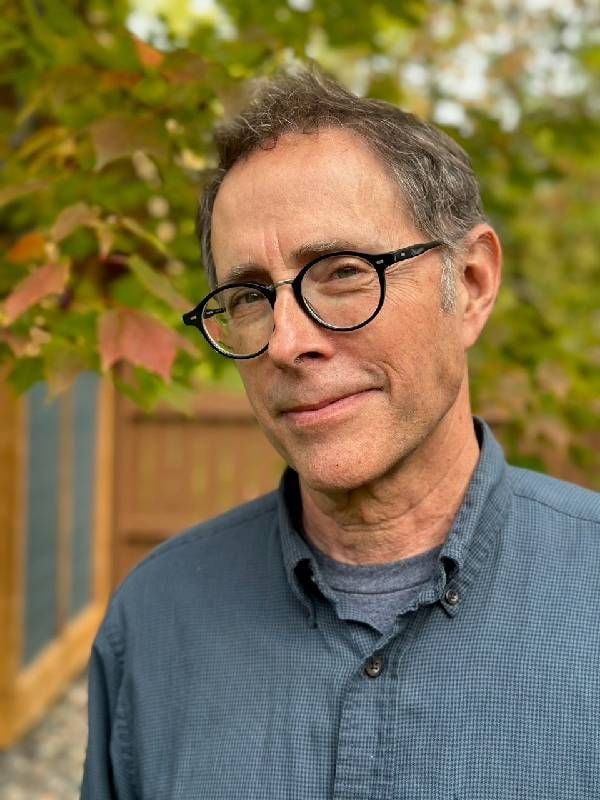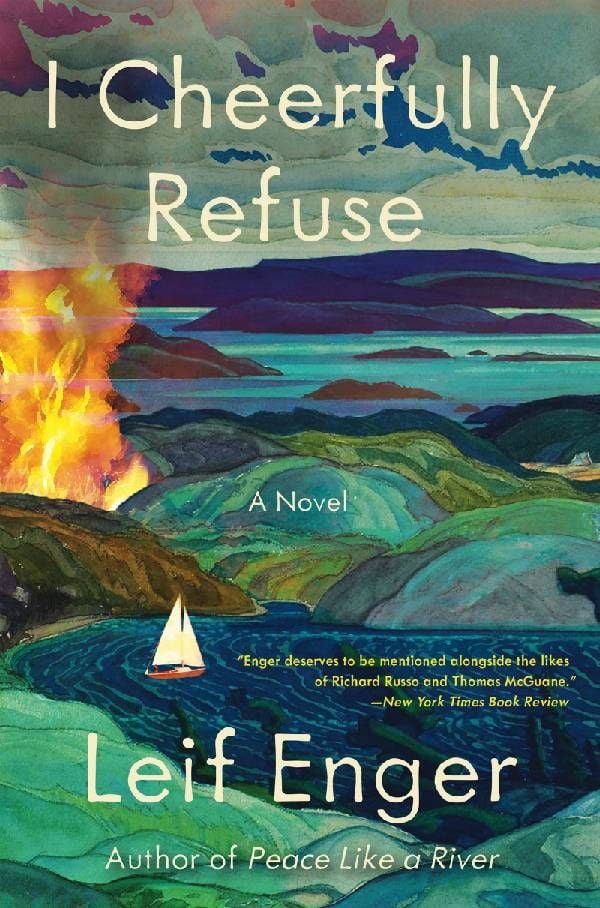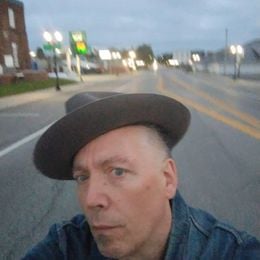Leif Enger Is 'More Intrigued by Questions and Less Satisfied With Answers'
Leif Enger, author of the bestselling ‘Peace Like a River,’ talks about his latest novel and the ‘holiness’ of Lake Superior
For 20 years, Leif Enger worked as a reporter for Minnesota Public Radio before writing his best-selling debut novel, "Peace Like a River," which was published in 2001 and named one of the year's best books by Time Magazine and the Los Angeles Times.

His second novel, "So Brave, Young, and Handsome" was also a national best seller. "Virgil Wander," his third novel, was named best book of the year by Amazon and the Chicago Public Library.
On April 2, Enger, who lives in Duluth, Minnesota, will be releasing his newest novel, "I Cheerfully Refuse." I was fortunate enough to read an advanced copy and I believe this is the book that will define Mr. Enger's legacy.
"I'm a reader first, and tend to write the story I'd most want to settle in with for the evening – a tale about people I like, in a place I never want to leave."
Recently I had the opportunity to ask Leif some questions about his current work and what's up next for him. This interview has been edited for length and clarity.
Danny Klecko: Leif, congratulations on the release of "I Cheerfully Refuse." I believe this is hands-down the best book you've written. I very much liked its apocalyptic/Orwellian flavor. Do you think your fan base will be accepting of this tone?
Leif Enger: First, thanks for your kind words! Like you, I'm a reader first, and tend to write the story I'd most want to settle in with for the evening – a tale about people I like, in a place I never want to leave. Those elements are foremost in "Cheerfully," so I hope readers will feel welcomed into the pages. The dystopian society these characters occupy — with its resource scarcity, malignant ruling class and climate upheaval — only extends many developments playing out today. My aim was to see where people find hope, when the very idea of a future is under threat.
As a writer and a proficient sailor, were you chomping at the bit to put a boat in a book that could match up with "Moby Dick" or "The Old Man and the Sea?"
Spending time on a sailboat you soon notice it responds to wind and water less like a machine than like a living creature. It wants the same things you do — a smooth motion through the waves, a quiet passage across the bay. It also seems to want to take care of you and rewards your practice and patience by keeping you safe in the gusts. The result of all this is that you begin treating it as a friend — as a character in your story. So it was enormous fun to write this nautical adventure — although, to be clear, no one competes with Melville or Hemingway!
"In a way Superior made the story easy to write — if I was struggling to set the mood for a scene, I went down and dipped my hands in the water."
Rainy, your story's protagonist, used a five-string Fender jazz bass to ward off evil. In many ways it was a weapon. How did you come up with this idea?
Music as defense against despair has a mythic history — Orpheus played his way into the underworld to attempt Eurydice's rescue, David's songs settled King Saul's agitated soul, Woody Guthrie painted "This machine kills fascists" on his guitar. And there's something so solid and elemental about electric bass — often you barely hear it, yet it helps to lay the foundation on which a song is built. Like the boat, it seemed a proper vehicle for Rainy.
Your descriptions of Lake Superior surpass beautiful. Was it humbling, trying to capture the spirit of such a holy place?
In a way Superior made the story easy to write — if I was struggling to set the mood for a scene, I went down and dipped my hands in the water. It was always cold, sometimes benign, sometimes majestic or brash or violent. Whatever the lake was doing, I put that feeling in the pages. There are geographies that overwhelm you, like a mountain range or active volcano. The Lake has that kind of gravitas.
"The writing itself has become — maybe not easier, but certainly more fun."
I believe you moved to Duluth about the time you started working on "Cheerfully." Could you have written this story from another location?
I doubt I'd have attempted this story without the Lake nearby.
Several years ago I interviewed your brother Lin about his novel, "American Gospel." That had to be one of the better books released during the pandemic. It focused on family, prophets and the end times. Did your brother's book influence "I Cheerfully Refuse?"
I love that novel — it's my favorite of Lin's books, and certainly some of the themes in "Cheerfully" echo ideas Lin explored in "American Gospel": the rejection of apocalyptic thinking, the need for hope, the frequent skirmishes between religion and ordinary decency. It's been my good luck to have Lin as a sounding board ever since we wrote our early mystery novels together. No one ever had a more generous writing mentor and I'm still learning from his work.
In the past, I feel as if your story plots were straightforward. You told stories that revealed solutions. "I Cheerfully Refuse" tends to be ambiguous, containing story lines I'm still trying to figure out. Was this intentional?
With time I'm more intrigued by questions and less satisfied with answers. Voltaire said, approximately, 'Cherish those who seek, flee from those who find,' by which he meant 'Look out for zealots.' The lovely thing about seekers is their tendency to live and let live. Who doesn't want neighbors like that?

You were in your 40s when you launched "Peace Like a River." Now you're launching your current title in your 60s. Has the writing process gotten easier or harder?
The writing itself has become — maybe not easier, but certainly more fun. There's a sense of delight especially in the rewriting stage, where you take a paragraph that's a promising mess and work it out with your hands, phrase by phrase, cutting and revising, reading aloud at times, altering its rhythm and meaning in the process, until it achieves something better than what you first imagined. You know this from writing your poetry: the result can surprise you, and nothing is more satisfying except maybe bread.
I know you're a big fan of Jonathan Franzen. I read an article where he said something like 'I'll probably finish my career writing six novels. Each project usually takes four or five years.' That's similar to your pace, Leif — I believe you've completed four novels. What do you think, do you have a couple more books to write?
Franzen's audacity — first in predicting six novels, then in proceeding to #7, which I think he's writing now — is also what makes him such a pleasure to read. And he keeps getting better, at least I think so. May he write six more! As for me, I've got two or three running around loose in my head and am making notes daily. Sooner or later one of them will become irresistible, and then I'll put my shoulder down and get that boulder moving.


